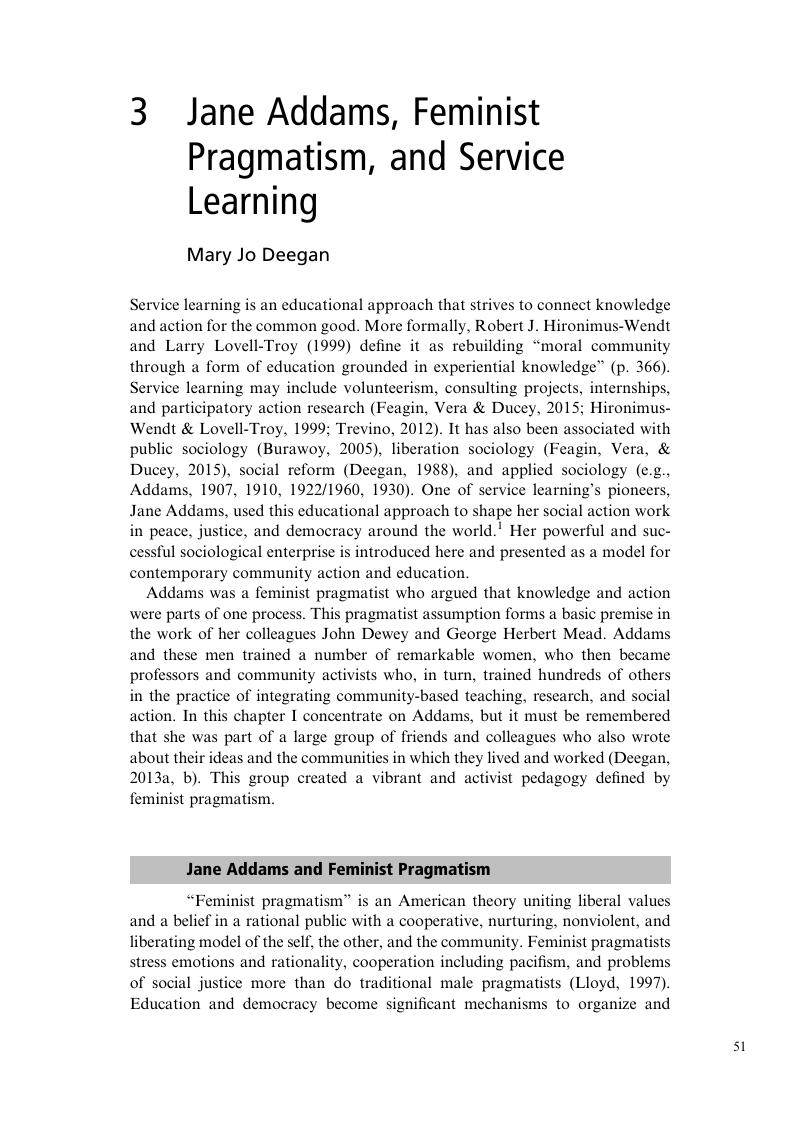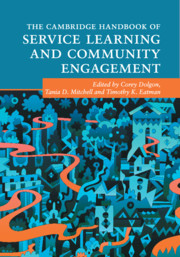Book contents
- The Cambridge Handbook of Service Learning and Community Engagement
- The Cambridge Handbook of Service Learning and Community Engagement
- Copyright page
- Contents
- Figures
- Tables
- Contributors
- Preface
- Introduction
- Part I Histories of Education and Engagement
- Introduction to Part I
- 1 Talking about Origins
- 2 Religion and Civic Engagement
- 3 Jane Addams, Feminist Pragmatism, and Service Learning
- 4 Historically Black Colleges and Universities
- 5 Recovering a Forgotten Lineage of Democratic Engagement
- 6 Labor Education and Workers’ Colleges
- 7 Connecting Civil Rights and Community Engagement
- 8 Ernest Boyer and the Rediscovery of Integration
- 9 A Brief History of the Civic Engagement Movement in American Higher Education*
- Part II Best Practices and Pedagogies
- Part III Engaged Teaching and Scholarship across Disciplines
- Part IV Research, Teaching, Professions, and Policy
- Part V Critical Voices
- Conclusion
- Index
- References
3 - Jane Addams, Feminist Pragmatism, and Service Learning
from Part I - Histories of Education and Engagement
Published online by Cambridge University Press: 23 February 2017
- The Cambridge Handbook of Service Learning and Community Engagement
- The Cambridge Handbook of Service Learning and Community Engagement
- Copyright page
- Contents
- Figures
- Tables
- Contributors
- Preface
- Introduction
- Part I Histories of Education and Engagement
- Introduction to Part I
- 1 Talking about Origins
- 2 Religion and Civic Engagement
- 3 Jane Addams, Feminist Pragmatism, and Service Learning
- 4 Historically Black Colleges and Universities
- 5 Recovering a Forgotten Lineage of Democratic Engagement
- 6 Labor Education and Workers’ Colleges
- 7 Connecting Civil Rights and Community Engagement
- 8 Ernest Boyer and the Rediscovery of Integration
- 9 A Brief History of the Civic Engagement Movement in American Higher Education*
- Part II Best Practices and Pedagogies
- Part III Engaged Teaching and Scholarship across Disciplines
- Part IV Research, Teaching, Professions, and Policy
- Part V Critical Voices
- Conclusion
- Index
- References
Summary

- Type
- Chapter
- Information
- Publisher: Cambridge University PressPrint publication year: 2017
References
- 5
- Cited by



